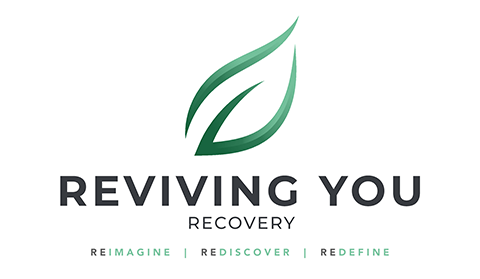How Do I Get My Loved One to Go Into Rehab?

Understand the Nature of Addiction
Before you can effectively support your loved one in getting help, it’s important to understand what addiction is—and what it isn’t.
Addiction is a chronic, relapsing brain disease that affects a person’s ability to control their substance use despite harmful consequences. It isn’t a matter of willpower or moral failure. Substance use changes the brain’s chemistry, hijacks decision-making, and distorts priorities. Your loved one may not be refusing treatment out of defiance—they may be deeply afraid, ashamed, or truly unable to recognize how far they’ve fallen. Compassion must come before confrontation. Educate yourself about addiction so you can lead with empathy and avoid language or behaviors that may cause defensiveness or denial.
Recognize the Signs That Rehab Is Needed
While it might seem obvious to you, your loved one might be in denial about how serious their addiction has become. Understanding the signs that indicate professional treatment is necessary can help you have an informed, honest conversation.
Signs Your Loved One May Need Rehab:
- Frequent intoxication or withdrawal symptoms
- Inability to control use despite wanting to stop
- Neglecting responsibilities at home, work, or school
- Changes in behavior, mood, hygiene, or appearance
- Legal or financial problems related to substance use
- Increased secrecy, lying, or manipulation
- Health problems stemming from alcohol or drug use
- Failed attempts to quit on their own
If these signs are present, outpatient or residential rehab may be the safest and most effective next step.
Start With a Conversation—Not a Confrontation
One of the biggest mistakes families make is trying to force their loved one into rehab without first engaging them in a thoughtful, open conversation. Timing, tone, and compassion are critical.
Tips for Talking to Your Loved One:
- Pick a calm, private moment to talk—avoid doing this when either of you is angry or emotional.
- Use “I” statements instead of “you” accusations. For example, say “I’m scared for you” rather than “You’re ruining your life.”
- Be honest and specific about what you’ve seen: “I noticed you’ve missed work multiple times this month and seem more withdrawn.”
- Avoid blame or judgment. Stay focused on concern and care.
- Listen more than you talk. Sometimes, giving your loved one space to speak may reveal fears or motivations you didn’t know existed.
- Be ready with resources. Have treatment options prepared (like Reviving You Recovery) so they don’t have to figure it all out alone.

Set Boundaries and Stick to Them
Loving someone doesn’t mean enabling them. Often, family members unintentionally support the addiction by trying to “keep the peace” or cover up the consequences of substance use. Establishing healthy boundaries can help encourage your loved one to take responsibility for their recovery.
Boundaries Might Include:
- Refusing to give them money that might be used for drugs or alcohol
- Not allowing them to live in your home if they continue to use
- Not making excuses for their behavior with friends, employers, or law enforcement
- Declining to bail them out of legal or financial trouble tied to substance use
You are not being cruel by setting boundaries—you’re showing love with clarity and strength. Boundaries create space for accountability, which can be a powerful motivator for change.
Get Your Questions Answered Now

Consider an Intervention
If your loved one continues to deny they have a problem or refuses to enter treatment despite multiple conversations, a formal intervention might be necessary. Interventions are structured, compassionate meetings designed to help someone recognize the impact of their addiction and accept help.
Key Aspects of an Effective Intervention:
- Involve close family and friends—those whose voices your loved one trusts
- Stay unified in your message: “We love you, and we want you to get help.”
- Rehearse ahead of time. Each person should express concern without judgment and share how the addiction has affected them.
- Set clear consequences if they refuse treatment (e.g., “We can no longer support you financially if you decline rehab”).
- Be ready with a treatment plan. Have arrangements in place with a center like Reviving You Recovery so your loved one can enter rehab immediately if they agree.
You may want to work with a professional interventionist to guide this delicate process and prevent escalation.
Address Their Fears and Objections
Many people refuse rehab out of fear. They may worry about being judged, losing their job, being away from family, or not being able to handle withdrawal symptoms. Listen to these concerns with empathy and respond with supportive facts.
Common Objections and Supportive Responses:
- “I don’t need help—I can quit on my own.”
“You’ve tried before, and I know how hard it’s been. You don’t have to do this alone.” - “I can’t miss work or school.”
“Your health comes first. Many treatment programs work with your schedule or offer outpatient services.” - “I’m scared of withdrawal.”
“You don’t have to suffer. Medical detox can help you get through withdrawal safely and comfortably.” - “Rehab won’t work for me.”
“Recovery looks different for everyone. Let’s give it a real shot with people who understand.”
Choose the Right Rehab Program
When your loved one finally agrees to treatment, time is of the essence. Having a rehab center lined up—like Reviving You Recovery—will help remove obstacles and maintain momentum. But how do you choose the right facility?
Look for a center that offers:
- Medical detox to manage withdrawal safely
- Personalized treatment plans based on individual needs
- Evidence-based therapies, including CBT, DBT, and trauma-informed care
- Dual diagnosis treatment for co-occurring mental health disorders
- Family involvement and education
- Aftercare planning to support long-term recovery
At Reviving You Recovery, we provide compassionate, comprehensive care that begins with detox and continues through ongoing treatment, helping each client build a foundation for lasting sobriety.
Practice Self-Care During the Process
While you’re doing everything you can to help your loved one, don’t forget to care for yourself. Addiction takes a toll on the entire family, and your health and well-being matter too.
Tips for Caring for Yourself:
- Seek support. Join groups like Al-Anon or therapy for families of addicts.
- Set emotional boundaries. It’s okay to take a step back when you feel overwhelmed.
- Don’t blame yourself. You didn’t cause the addiction, and you can’t control it.
- Celebrate small victories. Even the decision to talk about treatment is a step forward.
You’ll be better equipped to help your loved one when you’re emotionally grounded and supported yourself.

What If They Still Refuse?
Unfortunately, not every attempt leads to an immediate breakthrough. Your loved one may refuse help, lash out, or continue to deny the problem. This is heartbreaking—but it doesn’t mean your efforts were in vain.
- Stay consistent. Reaffirm your boundaries and remind them you’re ready to help when they’re ready.
- Keep the door open. Let them know you’ll support their recovery when the time comes.
- Reach out to professionals. Sometimes, treatment centers like Reviving You Recovery can offer guidance or outreach services to help initiate change.
- Hold onto hope. Many people hit rock bottom before they accept help. Change is still possible.
Conclusion: You Can Help Them Find Hope
Getting your loved one into rehab may not happen overnight, but every conversation, boundary, and act of love brings them one step closer to recovery. At Reviving You Recovery, we understand how painful this journey can be for families—and we’re here to help.
With a full continuum of care, compassionate professionals, and a safe, healing environment, we help individuals break free from addiction and rebuild their lives. If you’re ready to take that next step for your loved one, we’re ready to walk with you.
Contact Reviving You Recovery today to learn more about our detox and treatment programs. Help is closer than you think—and recovery is always possible.
We Accept Most Insurances
We are in network with:









We know insurance coverage can be a source of uncertainty for people. We make sure you have all the information necessary. The great news is health insurance can potentially cover the total treatment costs. If you don't have insurance, we offer cash payment options for our treatment programs and are committed to working with clients regardless of financial situations.
